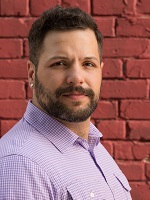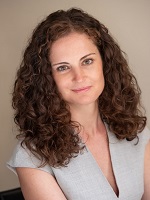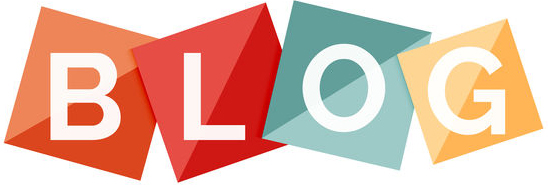Why the Importance of a Committee on Sexual and Gender Diversity Studies in the IPA?
As with any societal prejudice, bias against individuals based on actual or perceived sexual orientation or gender identity negatively affects mental health. Here, Marco Posadas and Diana E Moga discuss the usefulness of psychoanalytic theory and practice in undoing the harm caused by Sexual Orientation Change Efforts and the important work of the IPA’s Committee on Sexual and Gender Diversity Studies. Marco will also be taking part in an IPA webinar exploring Sexual and Gender Diversity on Sunday 23rd September, register for your free place here.
Violence towards sexual and gender minorities has become more visible with the current political climate in many parts of the world. This violence can go from the erasure of trans people’s rights from policies in the US, abduction and murder of gay men in Chechnya,
to conversion therapy being underreported in some Black, Asian and minority ethnic communities in the UK. One important aim of the
Committee on Sexual and Gender Diversity Studies of the IPA is to emphasise the need to recognise the damage that psychoanalysis as a profession – with standards of practise and training – has perpetrated towards marginalised gender diverse and sexually diverse populations. It is well known that black people and people of colour have one of the worst outcomes in healthcare, and things get particularly worse when we speak about access to mental healthcare, not only in the UK and US. Trans and gender creative people are targets for the expression of hatred. According to the
Human Rights Campaign in the US, 28 trans people were murdered in the United States in 2017; 23 of those were black trans women. How can we understand this type of violence towards black bodies and specifically black trans women? What does psychoanalysis have to say about it?
It is difficult to move forward without having complex, meaningful conversations about the violence inflicted to LGBTQ populations in general and racialised LGBTQ people in particular. This violence can be expressed in nuanced ways such as cultural assumptions that influence our psychoanalytic theories targeting sexually and gender diverse patients. Where to start? As a professional organisation, the IPA wants to highlight the usefulness of psychoanalytic theory and practice to help strengthen our understanding as a first step to undo the harm done by Sexual Orientation Change Efforts (SOCE) or Conversion Therapy.
It has been more than 100 years before we as a psychoanalytic organisation showed concrete evidence of our interest in contributing to the international ongoing dialogue regarding gender and sexual diversity in psychoanalysis. The Sexual and Gender Diversity Studies Committee is the first committee of the IPA to focus its work on the creation of spaces for psychoanalysts and candidates to discuss issues pertaining to the intersection of sexual and gender diversity and psychoanalysis. We are very interested in creating collaborative relationships across regions, and one in particular is our connection with the
American Psychoanalytical Association (APsaA) and their Committee on Gender and Psychoanalysis (CoGS). For this blog post, I took the liberty to invite Diana Moga, MD, PhD, Co-Chair of CoGS at APsaA, as co-author.
Psychoanalysts tried for decades to change people’s sexual orientation, but this only resulted in patients lying about their sexual orientation or adopting a “heteronormative” (the view that heterosexuality is the normal or preferred sexual orientation) front that never became authentic. APsaA’s CoGS has a strong, ongoing commitment to removing the stigma that has long been associated with homosexual, bisexual and transgender identities, gender non-conformance and promoting the health and wellbeing of LGBTQ adult and youth by educating the public and colleagues about the reality of the lives of LGBTQ people. In the last several years, CoGS has been writing letters of support to make therapies that attempt to change a person’s orientation or gender identity – aka conversion therapy – illegal for minors and a fraudulent business practice for adults.
However, psychoanalysts have still not fully integrated new theories and understandings of sexuality and gender identity into analytic theories about sex and gender. In the mid-1900s, the
Kinsey Reports demonstrated that sexuality changes over time and sexual response lies on a continuum. Many of the men and women studied by Kinsey had same-sex experiences and responses – he determined that heterosexual binary was a fiction. Further research showed that the concept of gender and one’s gender identity is multiply determined by temperamental factors, social norms, and acquired gender roles. New theories of sexual orientation development that have incorporated feminist and queer theory postulate that any partner preference, whether opposite-sex or same-sex, is a compromise formation, and includes identifications and relationships learnt from parents, kin, and the wider culture. There is also a growing understanding in the psychoanalytic community that the analytic process itself and the memories “retrieved” during an analytic treatment neither replicate nor describe development. We ultimately don’t know what leads people to identify as men or women or somewhere in between, or to be attracted to one person or another. Based on clinical experience, and the changes to scientific and theoretical views on gender and sexuality, there is no reason to pathologise or attempt to regulate any gender expression or sexuality; the American Psychoanalytic Association changed its position in 2012 to oppose all Sexual Orientation Change Efforts.
As with any societal prejudice, bias against individuals based on actual or perceived sexual orientation or gender expression negatively affects mental health, contributing to an enduring sense of stigma and pervasive self-criticism through the internalisation of such prejudice. Attempts to change one’s sexual orientation or gender expression can have serious mental health implications such as increased risk of depression and anxiety, substance abuse, and suicide.
We as psychoanalysts, should affirm the right of all people to their sexual orientation, gender identity and gender expression without coercive interventions attempting to change sexual orientation or gender identity and expression. Homosexuality is a normal variant of human sexuality and there are many expressions of gender; there is no medically valid basis for attempting to change either.
 Marco Posadas:
Marco Posadas: Is a Psychoanalyst in private practise in Toronto. He is Chair of the Sexual and Gender Diversity Studies Committee of the IPA, and Chief Clinical Officer of the House of Purpose.
 Diana E Moga MD., Ph.D:
Diana E Moga MD., Ph.D: Is a Psychiatrist and Psychoanalyst in private practise in New York. She is an Assistant Professor of Psychiatry at Columbia University and on faculty at the Columbia Centre for Psychoanalytic Training and Research. She is also a co-chair of the Committee on Gender and Sexuality at the American Psychoanalytic Association.
 Return to IPA Blog page
Return to IPA Blog page